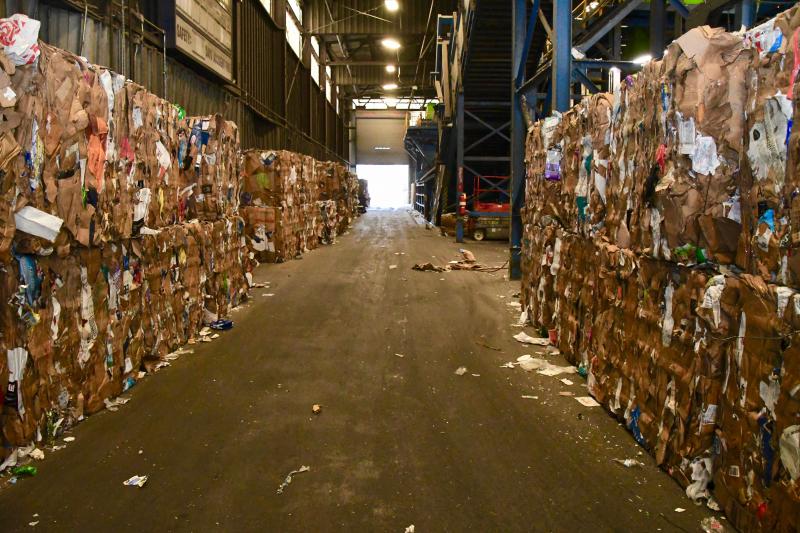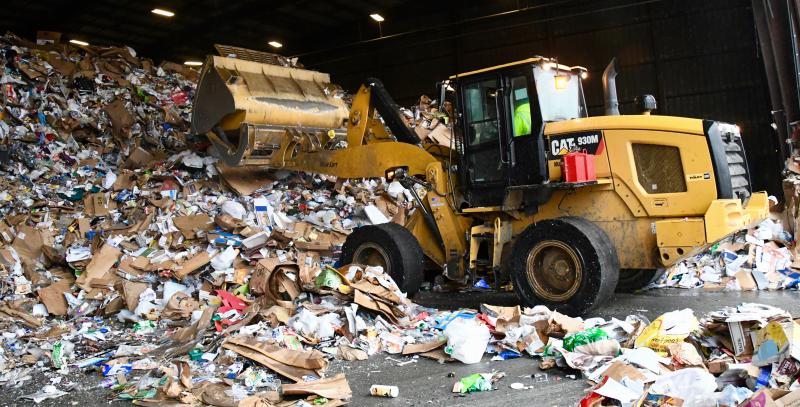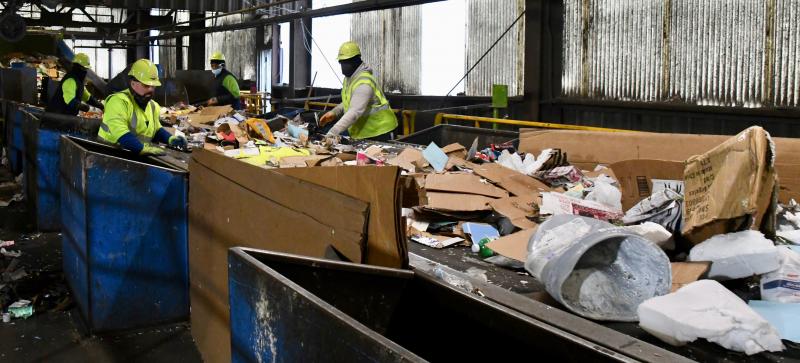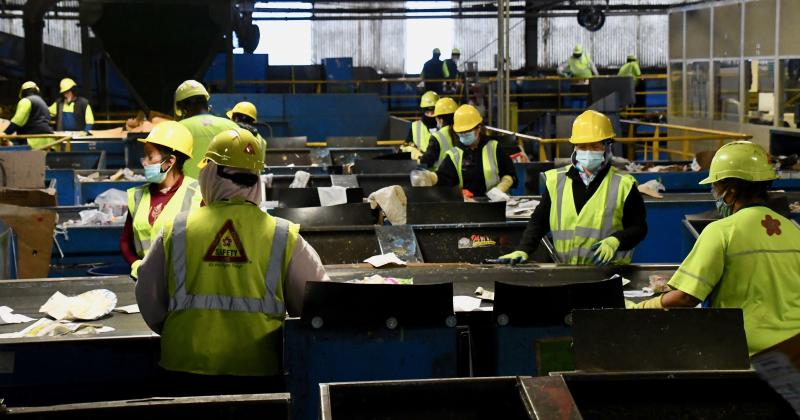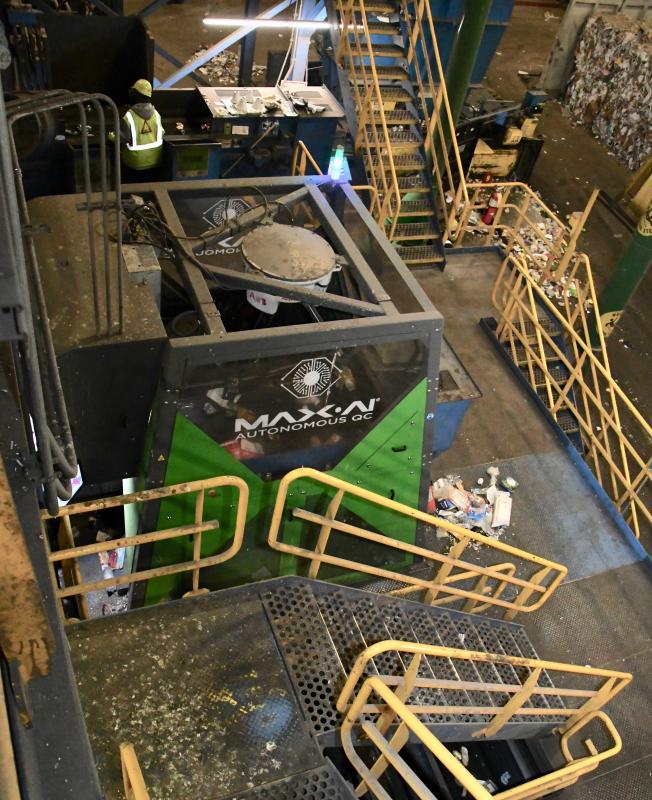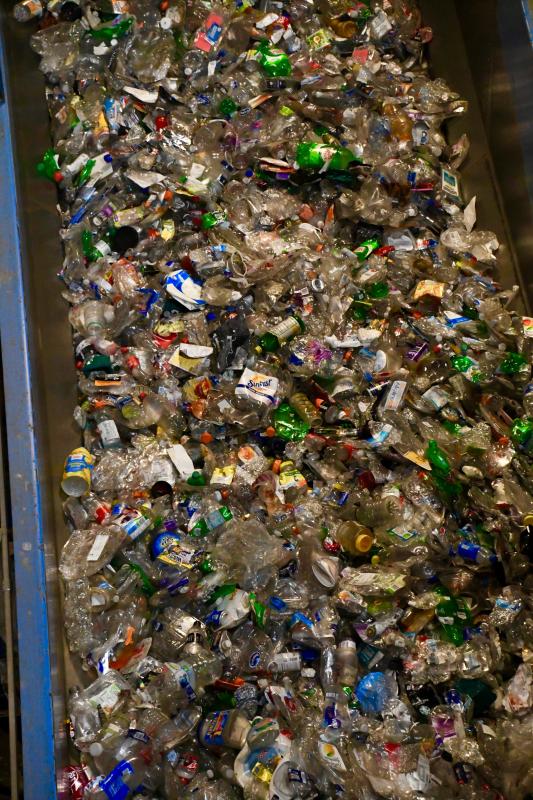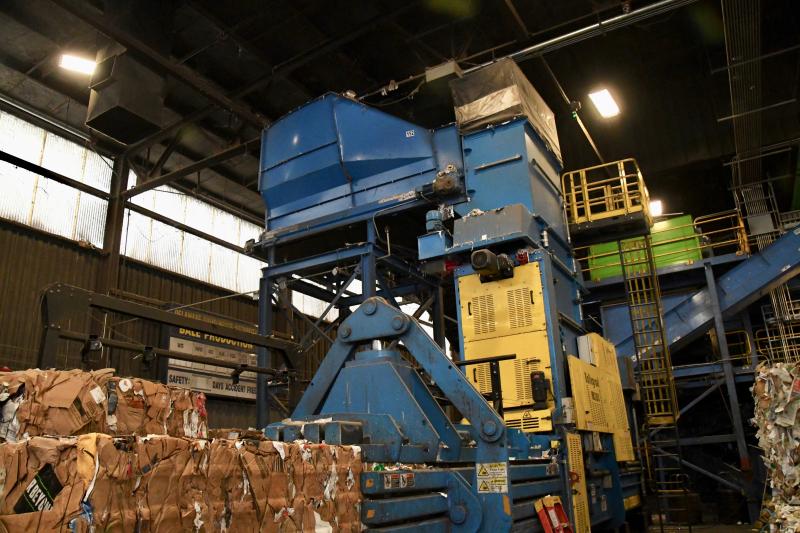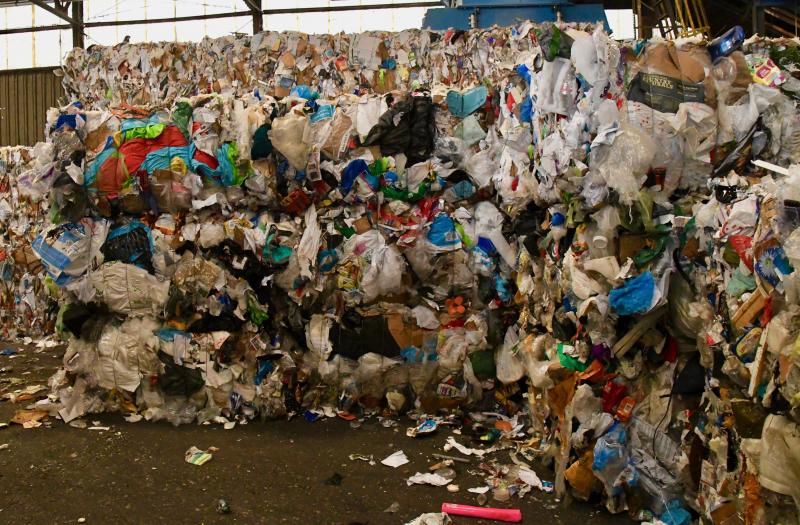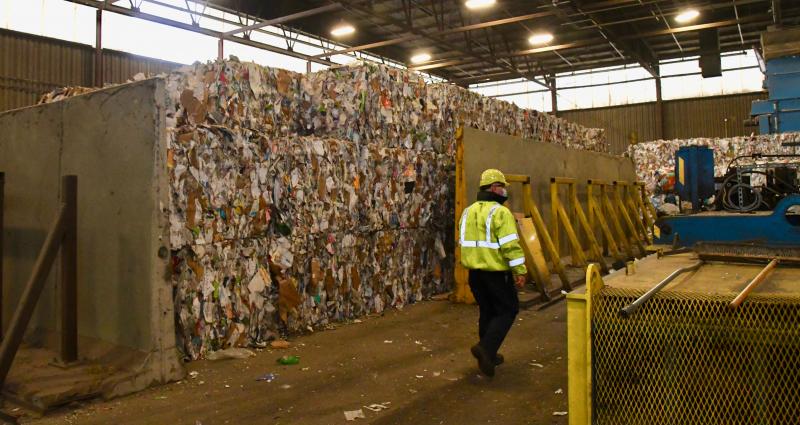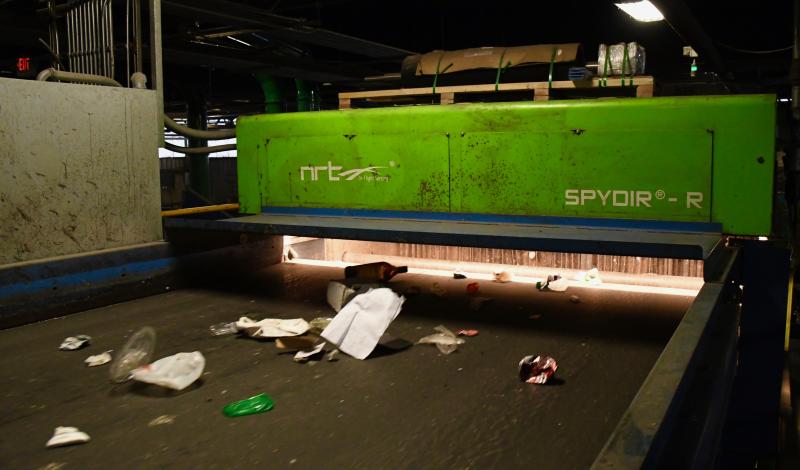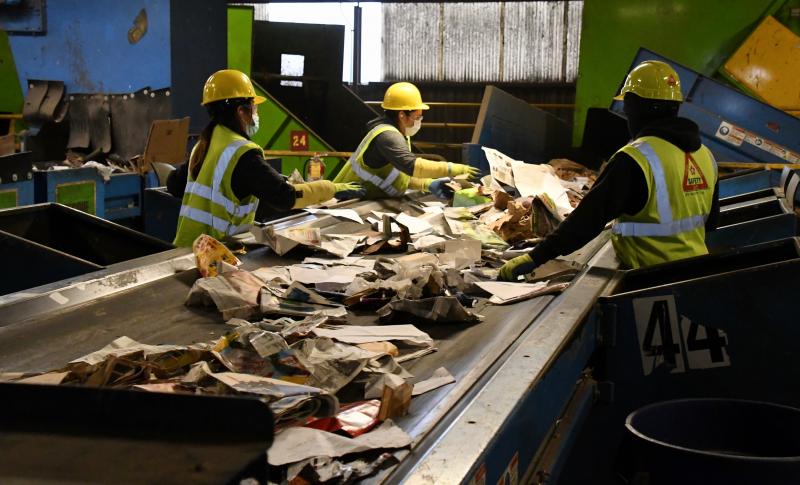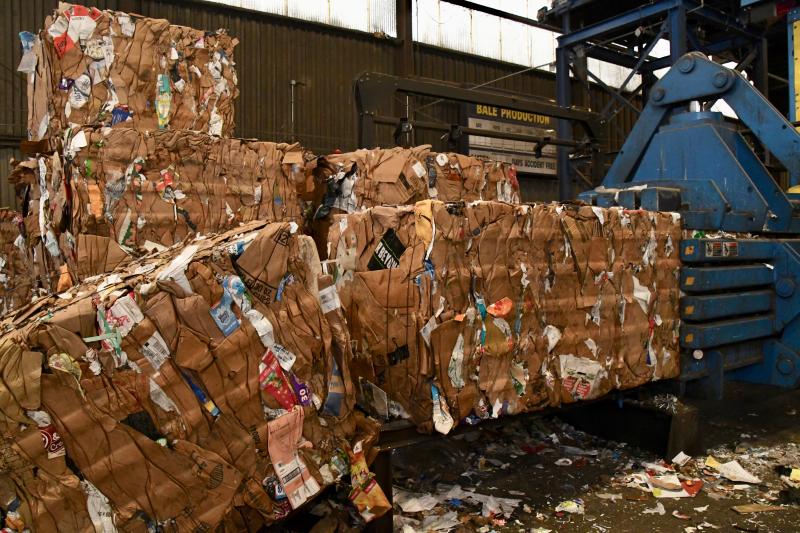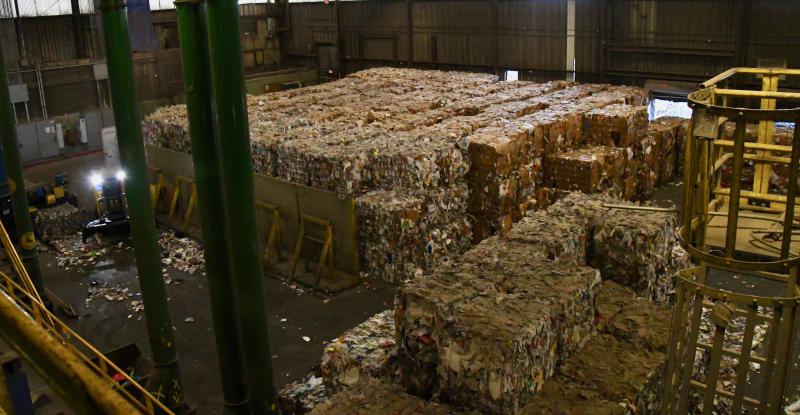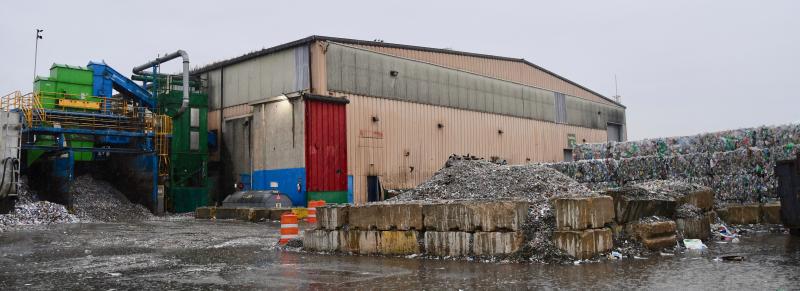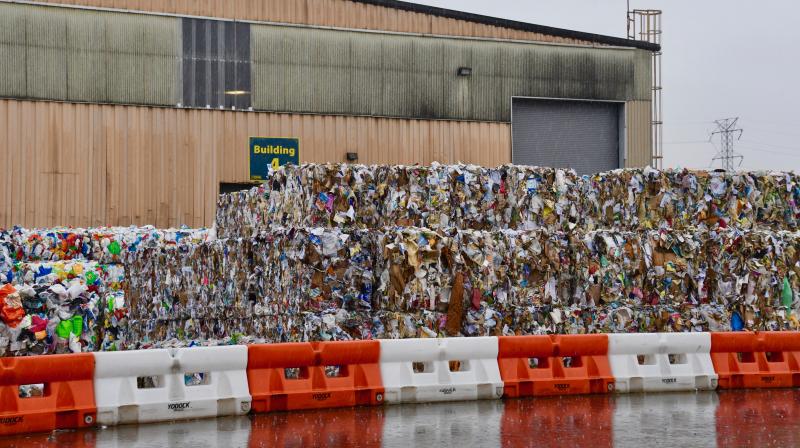Household recyclables end up at materials recovery facility
Recycling in Delaware has gone high-tech with optical sorters and even an artificial intelligence sorting robot, but that doesn't mean humans are not an integral part of the sorting and baling process at the Delaware Solid Waste Authority Materials Recovery Facility (MRF) near New Castle.
All household material collected at recycling centers and picked up by private haulers throughout the state ends up at the MRF, a large facility at the Delaware Recycle Center. In Sussex County, haulers pick up recyclables and deposit them at Delaware Solid Waste Authority transfer stations. Tractor-trailers pick up the materials and transfer them to the MRF.
Opened in 2012, the MRF, operated by Republic Services, sorts and bales about 10,000 tons of recyclables each month.
The single-stream recycling program in Delaware accepts aluminum and other metal cans, bottles and jars, cardboard, mixed paper (including newspapers, magazines, paperboard, paper bags, mail and office paper), plastic jugs, soda bottles, tubs and water bottles. All materials should be rinsed out with no food residue.
But that's not all that ends up on the conveyor belts at the MRF. It doesn't take long to see dirty jars, diapers, plastic bags, fast-food papers and a host of other material rolling on the first conveyor belt.
“If in doubt, throw it out,” says Andie Holt, general manager. “Because nine times out of 10, people will make the wrong decision.”
Because a lot of material is not recyclable, human sorters are required to man the long lines of conveyor belts in the facility. Pre-sorters are first in line as they begin the sorting process as soon as material is transported from the drop-off warehouse, known as the tipping room, into the facility.
Nearly 20 other sorters man stations along the long conveyor-belt process.
Near the end of the conveyor-belt process, optical sorters use infrared light on recyclables, such as plastics, they are programmed to sort. Once an item is identified, it's removed from the conveyor belt with a strong puff of air.
In addition, a fast-moving robot uses its mechanical arms to pick out aluminum and PET plastic.
Mixed paper and cardboard is sorted by screening and by hand; other metals are sorted out by magnets and glass is sorted through a separate system.
The MRF's 75 employees work two shifts, 16 hours a day, five days a week.
Plastic bags slow down process
Plastic bags are the No. 1 material causing problems at the MRF. The bags are not part of the single-stream program and if they get through the sorting system, can end up wrapping around machinery. Holt said on average, the conveyor belts are stopped two to three times a day to allow a crew to clean out the bags from the system.
Constant maintenance is required to keep the system operating.
Holt said employees are instructed not to open sealed plastic bags due to safety concerns. The bags end up getting baled and hauled to a landfill, along with other trash that is sorted out of recyclable material.
She said plastic bags still end up in the system even though most single-use plastic bags are now banned in the state. Plastic bags can be taken back to stores, which are required by law to provide recycling containers.
Markets stronger for recyclables
All processed and baled material is either picked up or taken to distributors or manufacturers that recycle or market recyclables. Nearly all paper is shipped overseas for recycling, while most other materials are recycled in the United States. “Markets are good now. We've rallied from 2017 when China stopped taking our materials,” Holt said.
The good news
One of the main goals of recycling is to divert waste from landfills, and the good news is that the amount of material ending up in landfills has dropped from more than 90 percent in 1960 to 50 percent in 2018.
Recycle right
• Empty all bottles of liquid.
• Rinse and clean out all cans and other recyclables.
• Thin plastic cups, such as red Solo cups, should be thrown out.
• Clear plastic to-go cups can be recycled; lids and straws should be thrown out.
• Throw out wax-coated frozen food boxes.
• Coffee cups, food waste, garbage, scrap metal, window and mirror glass, and shredded paper are not accepted for the single-stream system.
DSWA has separate collection locations for other materials including styrofoam, household batteries, used motor oil, yard waste, latex paint, household hazardous waste, electronics and appliances. Go to dswa.com for more information.
